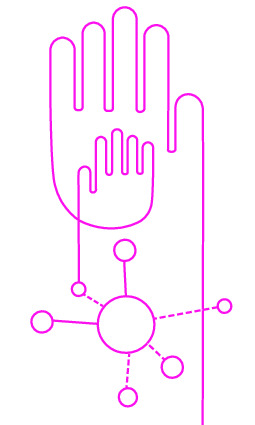|
|
|
| Module code: PdK-203 |
|
|
2V+2PS (4 hours per week) |
|
6 |
| Semester: 2 |
| Mandatory course: yes |
Language of instruction:
German |
Assessment:
Written exam: graded
[updated 01.10.2020]
|
PdK-203 (P322-0125) Childhood Education, Bachelor, ASPO 01.10.2017
, semester 2, mandatory course
PdK-203 (P322-0125) Childhood Education, Bachelor, ASPO 01.10.2019
, semester 2, mandatory course
|
60 class hours (= 45 clock hours) over a 15-week period.
The total student study time is 180 hours (equivalent to 6 ECTS credits).
There are therefore 135 hours available for class preparation and follow-up work and exam preparation.
|
Recommended prerequisites (modules):
None.
|
Recommended as prerequisite for:
|
Module coordinator:
Prof. Dr. Charis Förster |
Lecturer:
Prof. Dr. Charis Förster
[updated 12.09.2018]
|
Learning outcomes:
After successfully completing this course, students will possess interdisciplinary, scientifically sound knowledge, about social and developmental psychology, as well as health sciences.
They will be able to critically evaluate classical and current (social) psychological theories and models and assess their significance for professional socio-pedagogic practice. Students will be able to identify health-related phenomena depending on various individual and socio-cultural determinants. They will have detailed knowledge about protective and risk factors and can apply this to the example of good health.
[updated 01.10.2020]
|
Module content:
The basics of social-psychology, e.g.
-Introduction and overview
-Social perception
-Group processes (emergence, conflicts)
-Aggressive behavior (e.g. Bandura, ...)
-Prosocial behavior
The basics of developmental psychology, e.g.
-Theories and models of development (e.g. Piaget, Vygotsky, ...)
-Principles of development and educational processes (e.g. language, bonding)
-Developmental deviations
Health science basics, e.g.
-Health: Introduction and overview
-Risk and protective factors (resilience, salutogenesis, ...)
-Stress and stress management
[updated 01.10.2020]
|
Teaching methods/Media:
-Independent study: reading and processing scientific literature
-Discussions about basic concepts and models in small groups and with the whole class (partner work/group work)
-Short presentations within the framework of the introductory seminar
-Discussions about case studies and empirical studies
[updated 01.10.2020]
|
Recommended or required reading:
Aronson, Elliot/Wilson, Timothy D./Akert, Robin M. (2014). Sozialpsychologie. 8., aktualisierte Aufl. München: Pearson Studium.
Fischer, Peter/Asal, Kathrin/Krueger, Joachim (2013). Sozialpsychologie. Reihe: Springer-Lehrbuch. Berlin/Heidelberg: Springer Verlag. (ebook)
Gerrig, Richard J. (2015). Psychologie. München: Pearson Studium.
Jonas, Klaus/Stroebe, Wolfgang/Hewstone, Miles (Hrsg.) (2014). Sozialpsychologie. Eine Einführung. 6., vollst. überarb. Aufl. Heidelberg: Springer Medizin.
Hartung, Johanna (2010). Sozialpsychologie. 3., überarb. und erw. Aufl. Stuttgart: Kohlhammer Verlag.
Wälte, Dieter/ Borg-Laufs, Michael/ Brückner, Burkhart (2011). Psychologische Grundlagen der Sozialen Arbeit. In: Rudolf Bieker (Hrsg.) (2011). Soziale Arbeit. Grundwissen. Stuttgart: Verlag W. Kohlhammer.
[updated 01.10.2020]
|


